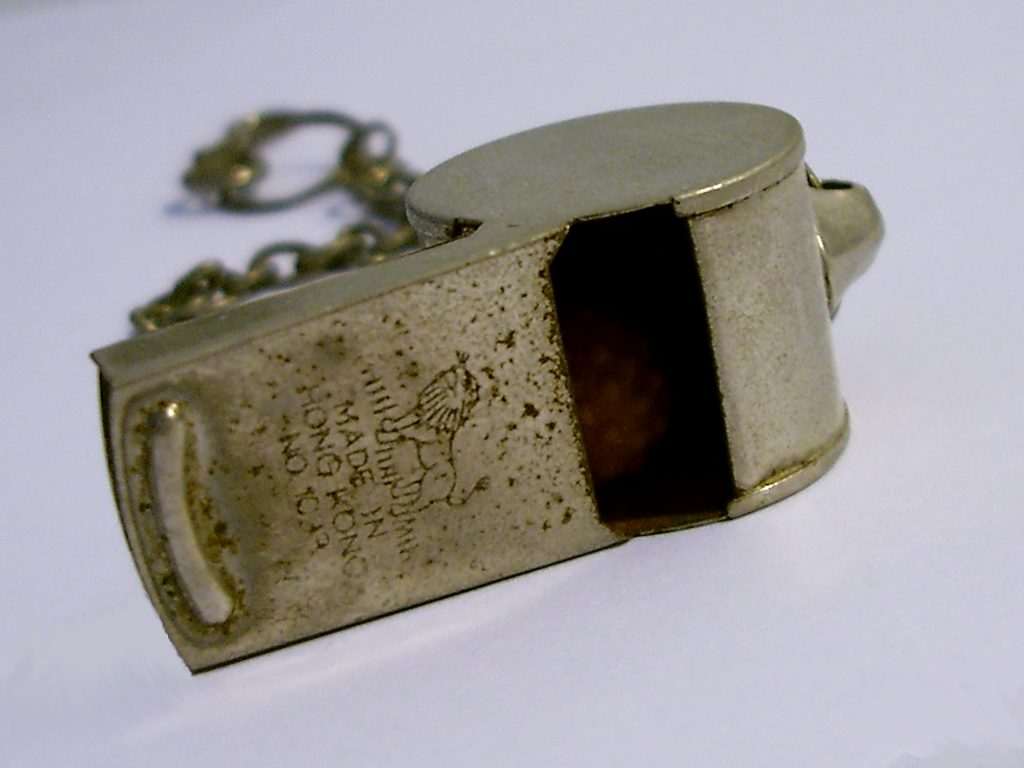 Unfair treatment at work can, unfortunately, be a common occurrence. While always annoying, the treatment can sometimes rise to such an egregious level that an employee feels justified in filing a lawsuit against the employer; especially if the aggrieved employee feels that there are racially motivated variances in treatment. As with all cases, however, the evidence is the key that unlocks the door to a successful lawsuit. For Rosie Washington, a former employee of the Louisiana State Penitentiary, an employment discrimination case devoid of evidence kept her victory behind locked doors.
Unfair treatment at work can, unfortunately, be a common occurrence. While always annoying, the treatment can sometimes rise to such an egregious level that an employee feels justified in filing a lawsuit against the employer; especially if the aggrieved employee feels that there are racially motivated variances in treatment. As with all cases, however, the evidence is the key that unlocks the door to a successful lawsuit. For Rosie Washington, a former employee of the Louisiana State Penitentiary, an employment discrimination case devoid of evidence kept her victory behind locked doors.
Mrs. Washington was a licensed practical nurse for the Louisiana State Penitentiary from 2001 to 2011. Mrs. Washington claimed that she began to suffer racial discrimination in 2008 after she refused to switch from the night shift to the day shift to accommodate a white couple who wanted to work together. After Mrs. Washington refused to switch shifts, she was disciplined three times and three Employee Violation Reports were created to document the disciplinary action. Mrs. Washington cited the disciplinary action and reports as evidence of racial discrimination along with instances where her leave requests were denied while others leave request was granted and where her absences from work were over counted. She also claimed that she was disciplined more harshly than white employees for the same conduct and that she was fired because of her race. In 2011, Mrs. Washington sued multiple defendants including the state of Louisiana, the Department of Public Safety and Corrections, the Louisiana State Penitentiary, and several other state actors for employment discrimination pursuant to Title VII of the Civil Rights Act. Mrs. Washington also sought an injunction to prohibit the penitentiary from firing her.
Following the dismissal of the non-Title VII claims by the United States District Court for the Middle District of Louisiana, the case proceeded for almost two years. During that two-year period, no pre-trial preparations or discovery occurred. Subsequently, the employment relationship between Mrs. Washington and the penitentiary ended in a manner that was unclear on the record. There being no evidence in support of Mrs. Washington’s claims, the defendants filed a motion for summary judgment. A human resources manager for the Louisiana Department of Corrections submitted an affidavit with the motion for summary judgment supporting that no discrimination occurred. As the record was devoid of any other evidence, the District Court granted the summary judgment motion and Mrs. Washington appealed.
 Louisiana Personal Injury Lawyer Blog
Louisiana Personal Injury Lawyer Blog


 We all know that each U.S. citizen is entitled to certain rights contained within the Constitution.
We all know that each U.S. citizen is entitled to certain rights contained within the Constitution. A
A  The National Flood Insurance Program, or NFIP, was Congress’ approach to providing flood coverage at affordable rates. Generally, through the program homeowners can buy a Standard Flood Insurance Policy, or SFIP, from the Federal Emergency Management Agency, or from private insurers. According to the Court of Appeals for the Fifth Circuit, the SFIP outlines the conditions and requirements under which federal funds may be distributed to eligible policyholders.
The National Flood Insurance Program, or NFIP, was Congress’ approach to providing flood coverage at affordable rates. Generally, through the program homeowners can buy a Standard Flood Insurance Policy, or SFIP, from the Federal Emergency Management Agency, or from private insurers. According to the Court of Appeals for the Fifth Circuit, the SFIP outlines the conditions and requirements under which federal funds may be distributed to eligible policyholders.  Whistleblowers play a controversial role in the United States. Without Mark Felt, also known as Deep Throat, the world would have never known about the corruptions in the Nixon Administration and without Edward Snowden, the world would have never known the extent of the NSA’s surveillance on both U.S. citizens and foreign individuals. Congress recognized the importance of whistleblowers when it passed the False Claims Act. The False Claims Act allows individuals to bring lawsuits (called a qui tam action) on behalf of the United States when an individual or entity defrauds the United States Government. See
Whistleblowers play a controversial role in the United States. Without Mark Felt, also known as Deep Throat, the world would have never known about the corruptions in the Nixon Administration and without Edward Snowden, the world would have never known the extent of the NSA’s surveillance on both U.S. citizens and foreign individuals. Congress recognized the importance of whistleblowers when it passed the False Claims Act. The False Claims Act allows individuals to bring lawsuits (called a qui tam action) on behalf of the United States when an individual or entity defrauds the United States Government. See  Is it cruel and unusual punishment for a prison to not provide an extra pillow and mattress to an injured prisoner?
Is it cruel and unusual punishment for a prison to not provide an extra pillow and mattress to an injured prisoner? Contractual relationships can advance or dissolve as time passes, often turning sour when promises are not kept. One or both parties may attempt to break the relationship but the underlying contract is not so easily terminated. As a result, the parties may find themselves in a court battle over seemingly small details. In this recent Louisiana case before the United States Fifth Circuit Court of Appeal, the presumably costly break-up came down to one little word.
Contractual relationships can advance or dissolve as time passes, often turning sour when promises are not kept. One or both parties may attempt to break the relationship but the underlying contract is not so easily terminated. As a result, the parties may find themselves in a court battle over seemingly small details. In this recent Louisiana case before the United States Fifth Circuit Court of Appeal, the presumably costly break-up came down to one little word.  What if you are injured, hire a lawyer, and that lawyer fails to sufficiently work on your case? Outrage ensues and you may choose to fire that lawyer and hire a second. But is that first lawyer entitled to payment if you happen to win and receive an award in your case? In a recent Louisiana case, the Fifth Circuit Court of Appeals decided that the answer can be in the affirmative.
What if you are injured, hire a lawyer, and that lawyer fails to sufficiently work on your case? Outrage ensues and you may choose to fire that lawyer and hire a second. But is that first lawyer entitled to payment if you happen to win and receive an award in your case? In a recent Louisiana case, the Fifth Circuit Court of Appeals decided that the answer can be in the affirmative.  It is not uncommon for a victorious party in a lawsuit to seek attorneys’ fees upon their win. There is no guarantee however the judge will agree an award of attorneys’’ fees are warranted. In some cases filed in state court, the defendant can remove the case be heard in federal court. If the federal court lacks jurisdiction, however, the case will be sent back to state court. Whether the attorneys’ fees associated with the removal process can be recouped by the winning party is the subject of a recent lawsuit out of New Orleans.
It is not uncommon for a victorious party in a lawsuit to seek attorneys’ fees upon their win. There is no guarantee however the judge will agree an award of attorneys’’ fees are warranted. In some cases filed in state court, the defendant can remove the case be heard in federal court. If the federal court lacks jurisdiction, however, the case will be sent back to state court. Whether the attorneys’ fees associated with the removal process can be recouped by the winning party is the subject of a recent lawsuit out of New Orleans.  When a case goes to trial, there are many nuances that a lawyer might have to address, including a motion for a continuance or a dismissal. A continuance is the postponement of a hearing, trial or other scheduled court proceeding at the request of either party or by the judge. A dismissal occurs when the court ends a legal action before completing the trial process. This case out of the Parish of East Baton Rouge demonstrates Louisiana’s requirements for a continuance or a dismissal in the district courts.
When a case goes to trial, there are many nuances that a lawyer might have to address, including a motion for a continuance or a dismissal. A continuance is the postponement of a hearing, trial or other scheduled court proceeding at the request of either party or by the judge. A dismissal occurs when the court ends a legal action before completing the trial process. This case out of the Parish of East Baton Rouge demonstrates Louisiana’s requirements for a continuance or a dismissal in the district courts.